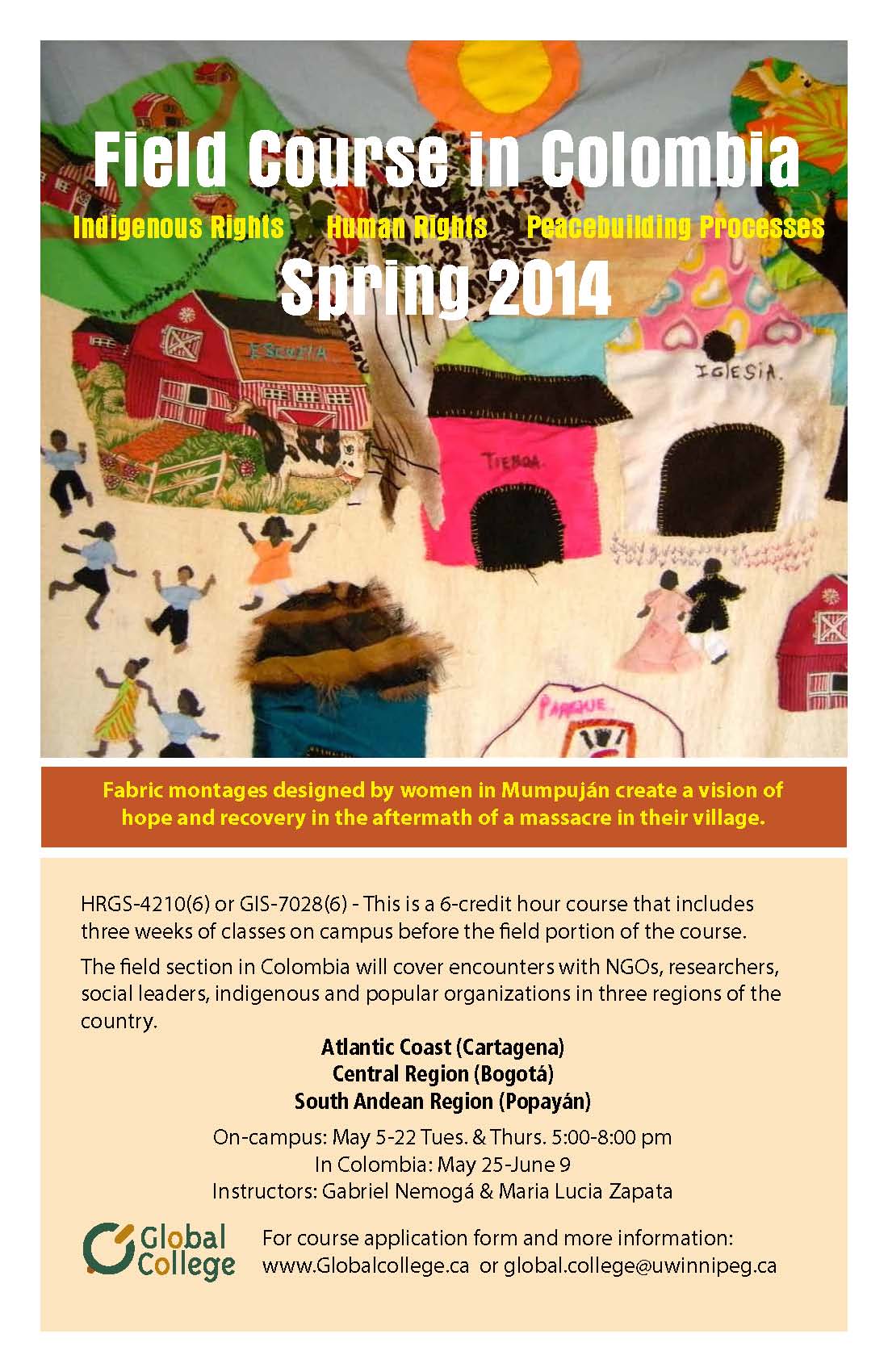Field Courses
Past Field Courses
SPRING 2018
HR-4650 (6) Special Topics
Health and Human Rights in Social Context
A Field Course in Southern Africa and Manitoba
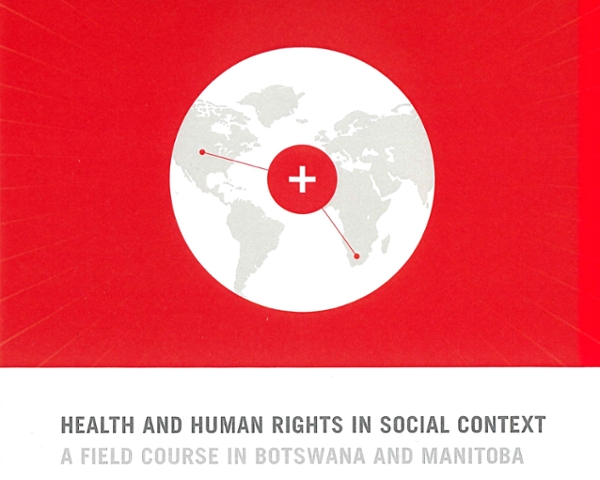
This course examines the intersections between health and human rights in Canada and Southern Africa highlighting the impact of social context on health outcomes and the provision of health services. While at first glance these two parts of the world are very different – one at the epicenter of the HIV pandemic, the other with some of the longest life expectancies in the world – both struggle with equitable access to health and healthcare across population groups, and between urban and rural areas.
This field course involves 2 weeks spent in Southern Africa and 2 weeks in Manitoba, with time spent in both urban and rural areas in both settings. We examine health within the walls of clinics and hospitals but also beyond them – interrogating the role of social biases, cultural practices, housing, transportation, food and socio-economic and geographic factors on individual and population health. Although the right to health is included in key international human rights conventions, its realization is complicated and inequitable. Situating health in two different geographic settings, we examine how social context affects health engaging with academics alongside government, community, and civil society actors (working with women’s groups, sex worker organizations, HIV organizations, LGTBQI groups, indigenous health organizations, community health services, etc.).
Additional research/applied work (June, July, August)
To meet the requirements of HR-3510 Practicum in Human Rights, approved students could remain in the field to complete those course requirements. To meet the requirements of the QE II Diamond Jubilee scholarship/internship, students could extend their research in the Commonwealth country to meet the 90 day requirement. This could involve an additional reading course or internship.
WINTER 2018
HR-4650-730(6) Special Topics
Quest for Peace, Justice, and Human Rights:
A Field Course in Israel and the West Bank
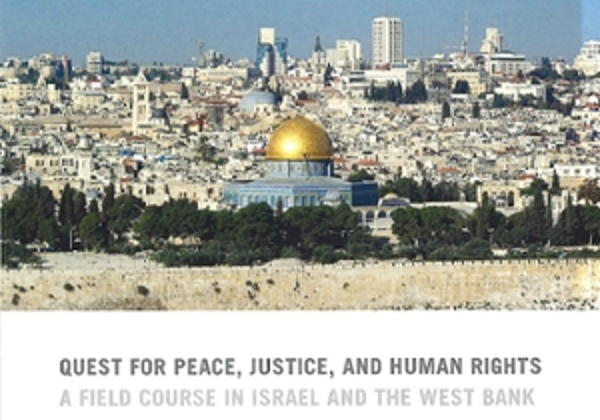
Explore first-hand the conflict and justice issues in Israeli-Palestinian relations. This course examines social, political and religious perspectives of one of the most enduring contemporary conflicts. The course will meet once a week on campus, and include two weeks in Israel and the West Bank (Feb 16-Mar 4, 2018, dates approximate). This field portion will include guest lectures from various individuals and organizations, visits to sites of historical, religious, and political significance.
This course can be taken for graduate or undergraduate credit, or on a non-credit basis for those who do not seek academic credit.
Instructor: Dean Peachey
Pathways to Reconciliation - A Manitoba Field Course
IS-4200(6)/HR-4650(6)
Dual Credit with GIS-7200
Manitoba, including:
- Classroom sessions on campus
- Midewiwin Spring Ceremonies, Rosseau Rapids
- Indigenous-Settler relations in Altona
- Participation in Pathways to Reconciliation Conference
Instructors:
Lorena Sekwan Fontaine, Indigenous Studies
Dean Peachey, Human Rights
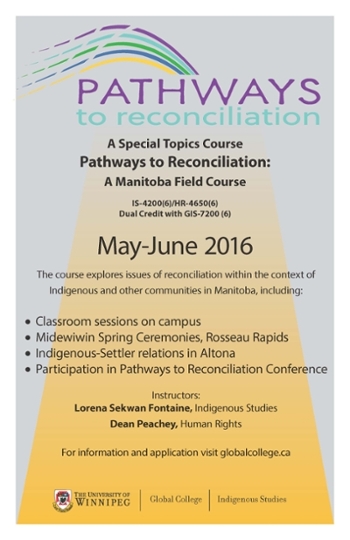
Indigenous & Human Rights in Latin America including Field Course in Colombia
Spring 2016
Dual Credit: HR-4210 (6) or GIS-7028 (6)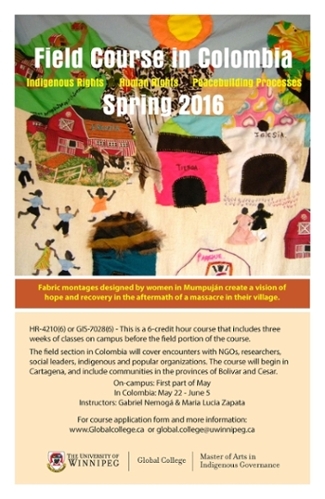
The course is structured in two parts:
On campus
The first three weeks of the course will be conducted on the UWinnipeg campus, providing for introduction and study based on secondary sources on the Colombian Indigenous and human rights situation, civil conflict and background to the current peace negotiations.
Colombia
The field section in Colombia will cover encounters with NGOs, academic and researchers, social leaders, indigenous and popular organizations and minor complementary readings. In the field portion of the course, we will be joined by students enrolled in the University of Cartagena Masters in Social Conflict and Peacebuilding, and their instructor, Rosa Jimenez.
Instructors
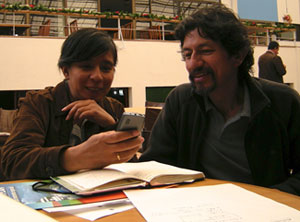 Gabriel R. Nemogá, Ph.D.
Gabriel R. Nemogá, Ph.D.
Gabriel R. Nemogá is an Associate Professor at the University of Winnipeg and Chair of the Master in Arts in Indigenous Governance. His research focuses on cultural and biological diversity and indigenous rights. He has worked with Indigenous communities in the tropical rain forest in Mexico, and in the Amazon and Andean region. Previously he was an Associated Professor at the National University of Colombia. He has degrees in PhD Human Ecology (University of California-Davis), MA (Brunel, UK), BA in Sociology (National University of Colombia), BA in Law (Free University of Colombia).
Maria Lucia Zapata, M.A., Ph.D. Candidate
Maria Lucia Zapata is a doctoral student in Peace and Conflict Studies at the University of Manitoba, where her dissertation focuses on peacebuilding processes in Colombia. Maria Lucia has extensive experience in peacebuilding, conflict transformation and restorative justice in Colombia, Canada and the Philippine Her main research interests are grassroots peacebuilding and post-liberal peace.
 Rosa Jiménez Ahumada, M.Ed.
Rosa Jiménez Ahumada, M.Ed.
Rosa Jimenez is a Social Worker and has a Master in Education. For many years she has worked in community development and peace building processes with vulnerable and poor communities, especially in the Colombian Caribbean Coast.
Rosa teaches in the department of Social Work at the University of Cartagena. Her main interest is to guide students in the development of programs for the attention of individuals and communities displaced by the armed conflict and, in the design and implementation of programs to overcome poverty through the transformation of conflicts.
For ten years she has been the director of the Observatory for Forced Displacement at the University of Cartagena. Currently, she is the Academic Coordinator of the Master of Social Conflict and Peacebuilding.
HR-3550-730(3) Human Rights, Security and the United Nations
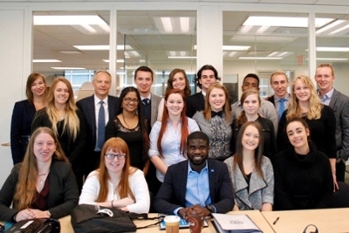
More photos and student testimonies!
Wednesday 2:30pm-5:15pm
Instructor: M. McPhedran
As a forum of global governance, the United Nations is a complex and widely contested institution. This course explores the UN and its principal organs and related agencies, with particular attention to the Security Council and the Council's use of thematic and country-focused resolutions related to human rights and human security. Topics include women in war and peacebuilding, and the role of civil society organizations in promoting human rights agenda at the UN, and Canada's role in these debates. The course includes a field trip component in New York and Ottawa with guest lectures by Canadian and UN officials and leaders in international civil society organizations.
PREREQUISITE: HR-2100(3) or the former HRGS-2101(6) or POL-2101(6), permission of the instructor, and a completed application form.
Please note: Due to the federal election scheduled for October 19, Prof. McPhedran has chosen to not go to Ottawa as key individuals will be unavailable to meet with the class. The field course fee has been reduced to reflect the New York only itinerary.
Religion, Rights, and Relationships in Israel and the West Bank
Winter 2015
Dual Credit: HR-4650-730(6) or GTHEO-7362-730(6)
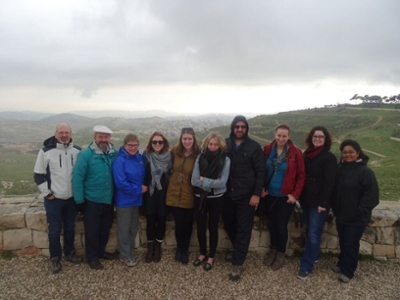
This course explored contemporary conflict and justice issues in Israeli-Palestinian relations, with particular attention to the perspectives and contributions of the three Abrahamic faith traditions, along with secular narratives. The course met once a week on campus, and included two weeks in Israel and the West Bank. This field portion included guest lectures from various individuals and groups, and visits to sites of historical, religious, and political significance.
“I cherish the experience I had in Israel and the West Bank. Throughout the two weeks I found myself being pulled from one side to another. I had to remind myself that everyone has a truth and that each person we met deserved to be heard without judgment. When you take theory from a textbook and apply it through experiential learning, it enriches the learning experience.” - Hayley Hickey, student
Indigenous & Human Rights in Latin America including Field Course in Colombia
Spring 2014
Credit: HRGS-4210 (6) or GIS-7038 (6)
The course was structured in two parts:
May 5-22 Tues. & Thurs. 5-8pm
The first three weeks of the course was conducted on the UWinnipeg campus, providing for introduction and study based on secondary sources on the Colombian Indigenous and human rights situation, civil conflict and background to the current peace negotiations.
May 25-June 9
The second part took place in Colombia, covering encounters with NGOs, academic and researchers, social leaders, indigenous and popular organizations and minor complementary readings. In Colombia, we were joined by students enrolled in the University of Cartagena Masters in Social Conflict and Peacebuilding, and their instructor, Rosa Jimenez.
UN Study Tour
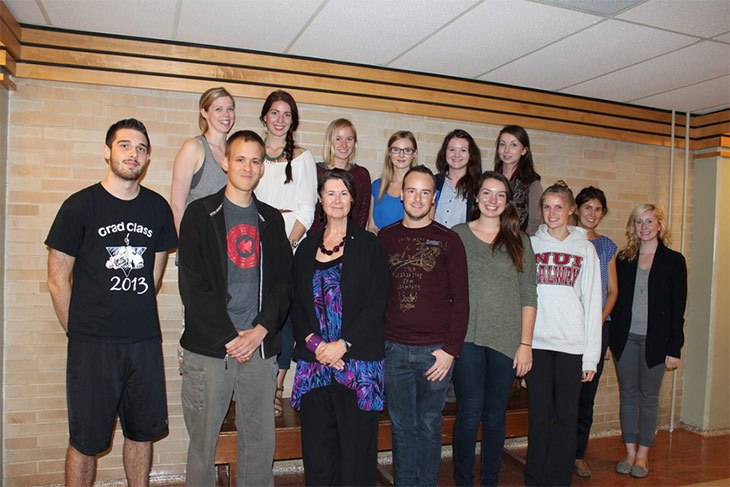
Oct 27-Nov 1, 2013
Professor Marilou McPhedran led a United Nations study tour of Ottawa and New York City in October 2013. This tour was the main component of the Global College's HRGS-3650 Special Topics Field Course on Human Rights and Human Security at the UN. UWinnipeg students, ranging from their first year to fourth year of studies, began their trip in Ottawa with a visit to Parliament and the Department of Foreign Affairs, Trade and Development Canada. The students then travelled to New York City where they met with Canadian diplomats, NGO representatives and former Winnipeggers who now work for the United Nations. Students also visited the Brooklyn Art Museum, the Museum of Modern Art and participated in other activities related to the week-long anniversary of the UN Security Council Resolution 1325: Women, Peace and Security.
A video essay created by Austin Grabish as part of his course work.
Sport, Development, and Peace
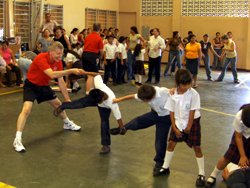
May 12-26, 2012
Vice President Academic Dr. John Corlett was accompanied by a number of students for two weeks in El Salvador to explore child and youth development in an environment of violence, economic struggle, and gang culture. This field course offered a chance to explore the reality of key concepts such as justice, freedom, human rights, democracy, wealth, poverty, and national development in an environment vastly different from the North American context in which most Canadians live. The course focused on projects using physical education activities to improve school and culture and counter social problems.
Post-Conflict Truth, Memory, and Reconciliation
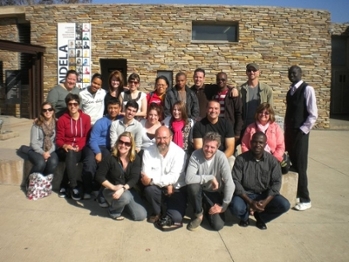
View a photo book with excerpts from student journals here.
News releases:
Police Officer Seeks truth in South Africa - Winnipeg Free Press
A Journey of the heart - Uptown Magazine
Truth and Reconciliation: Students off to South Africa- The University of Winnipeg
South Africa trip gives students hope - Winnipeg Free Press

